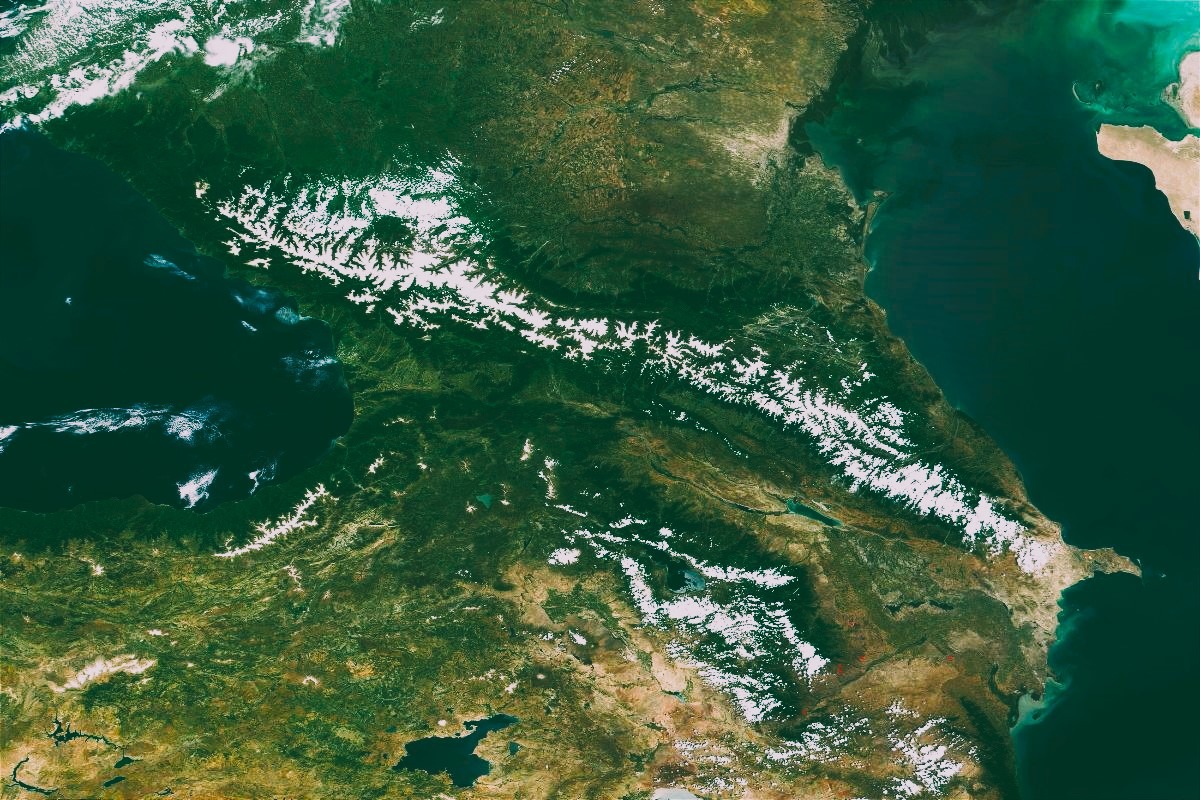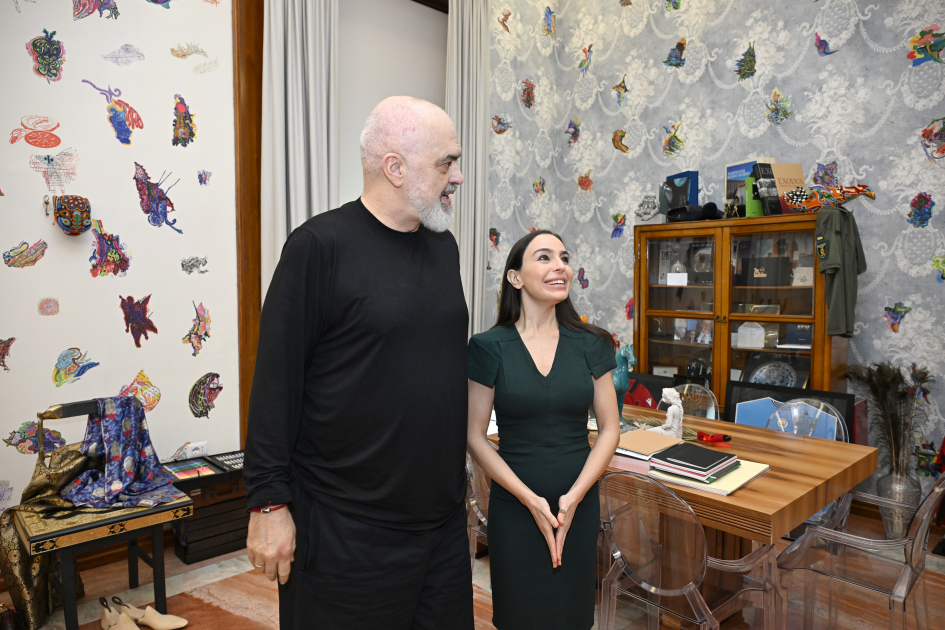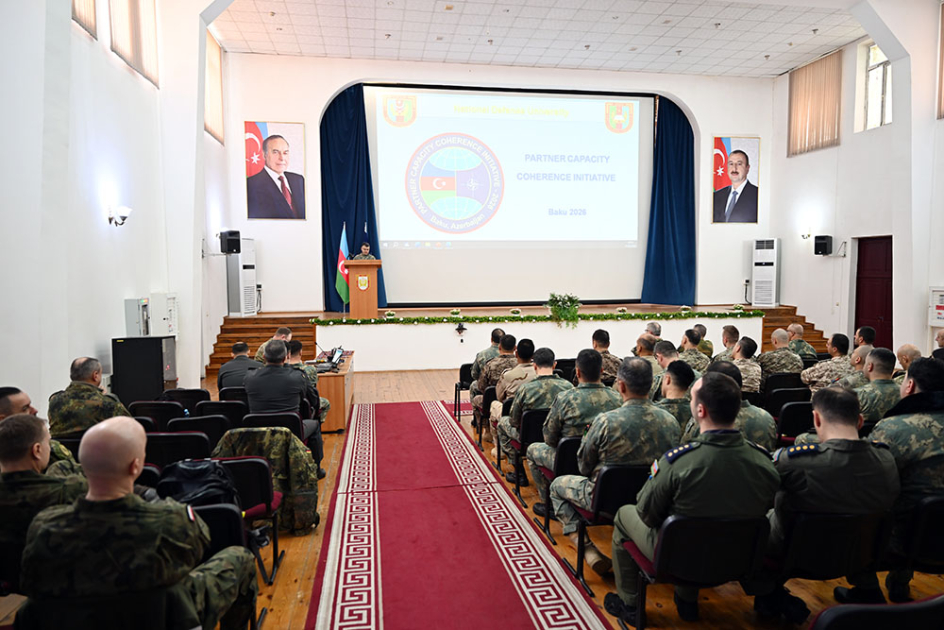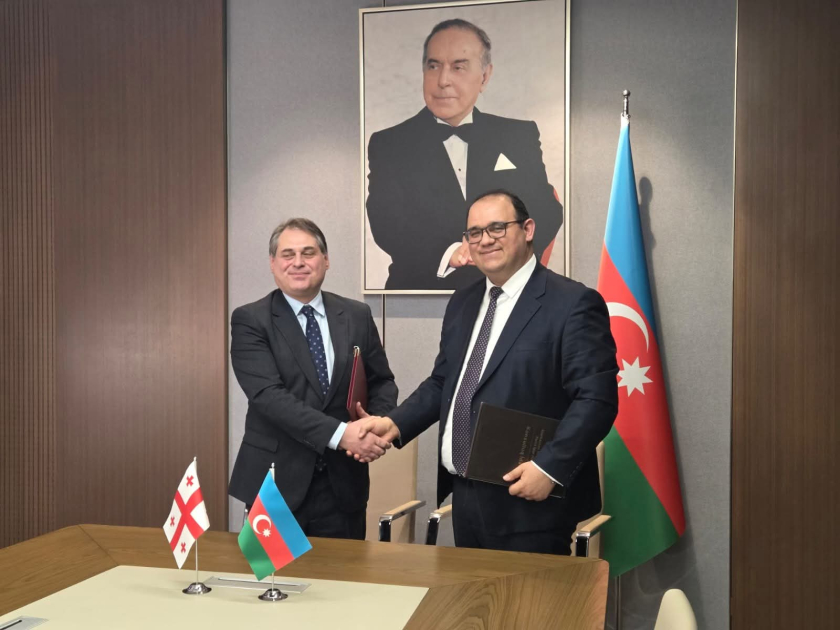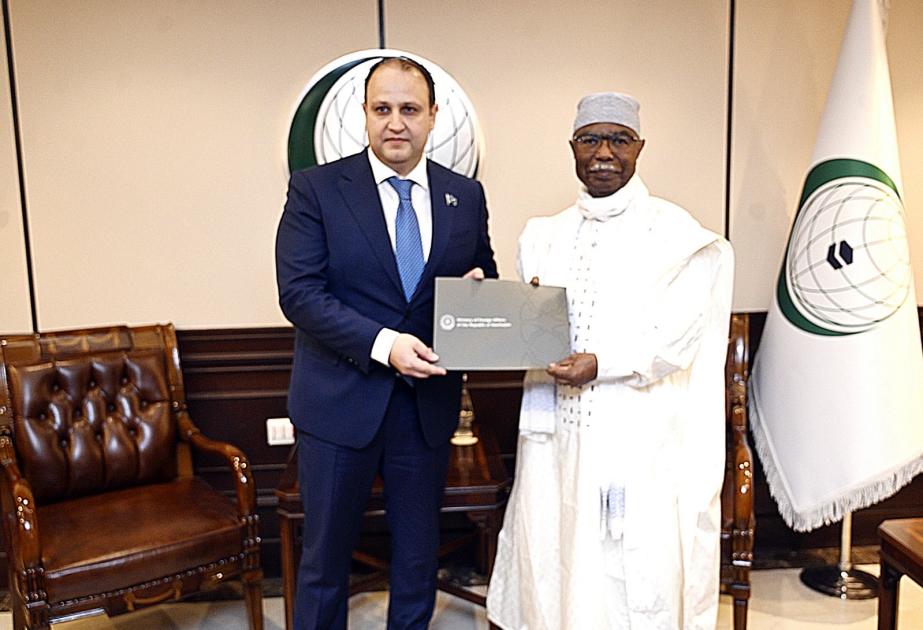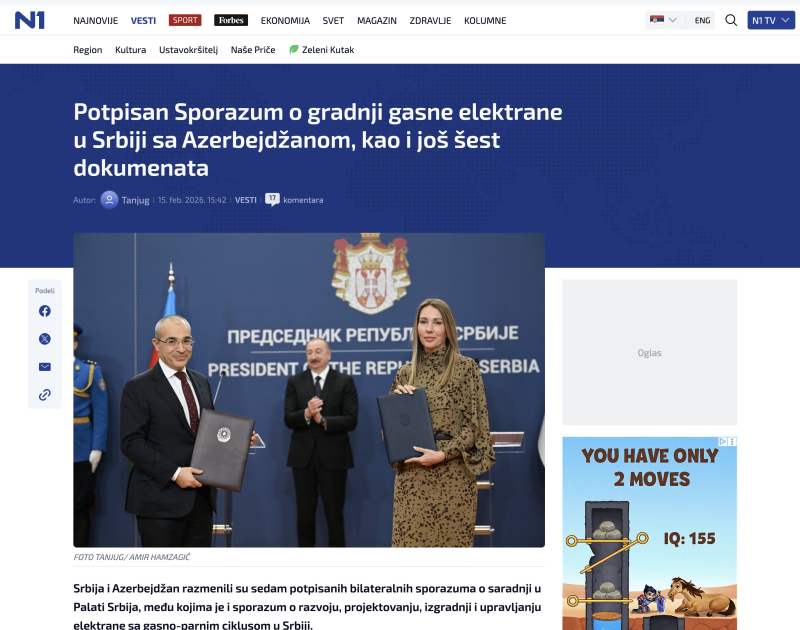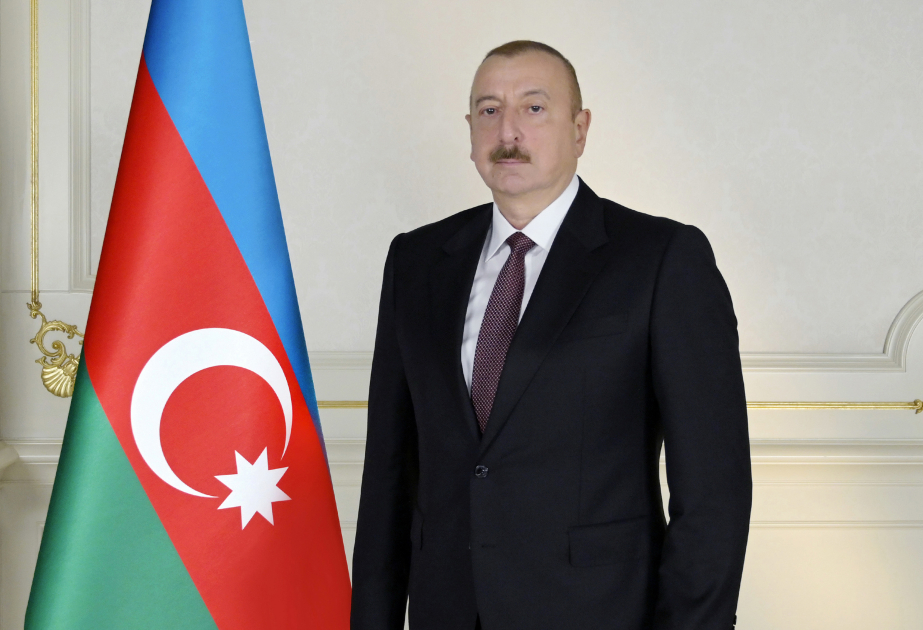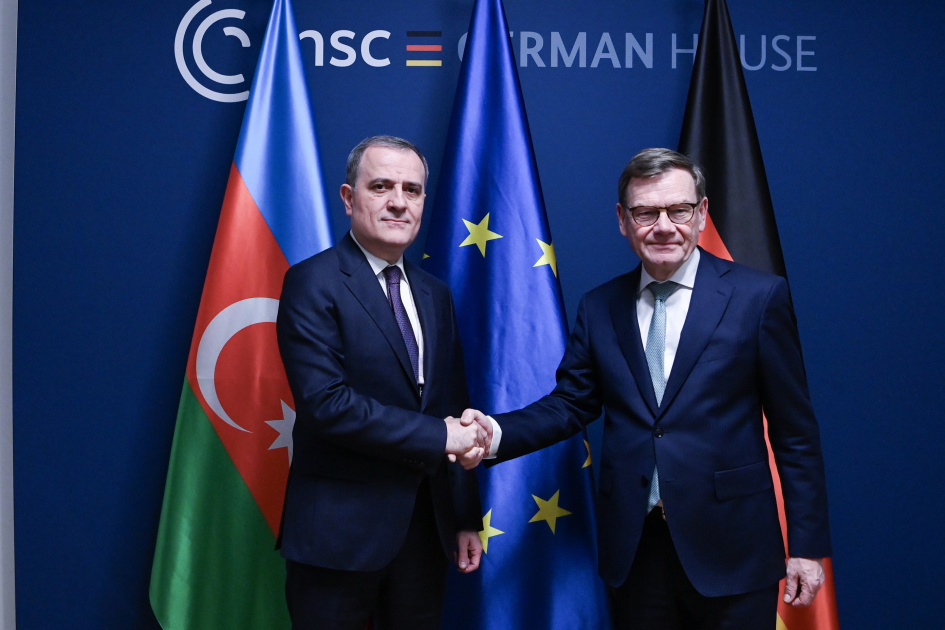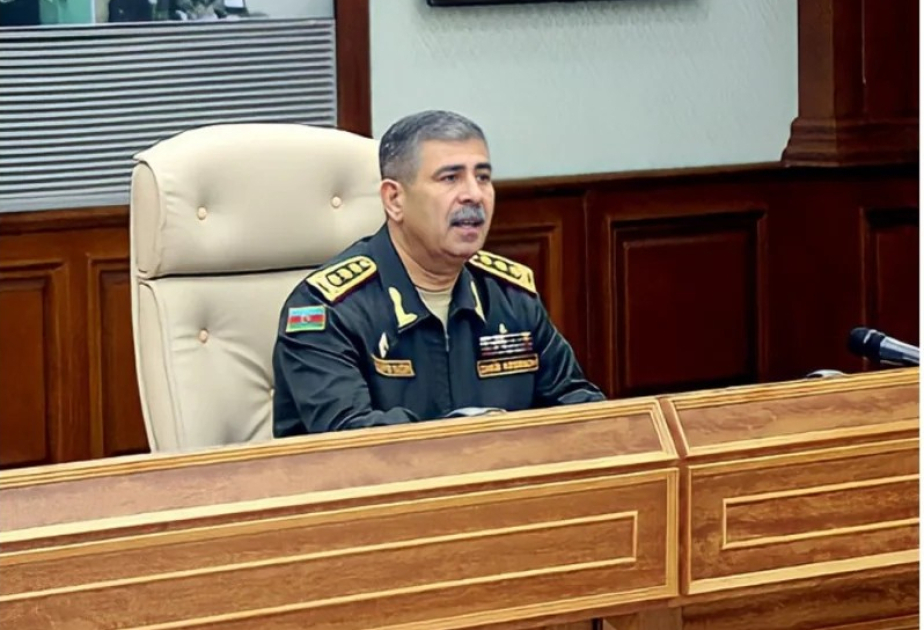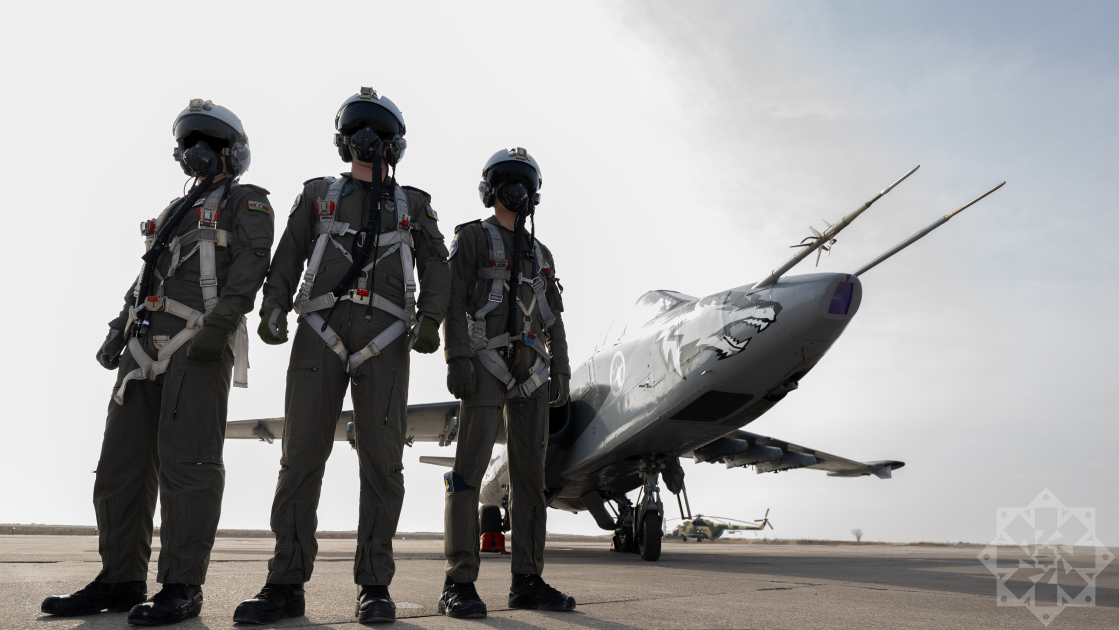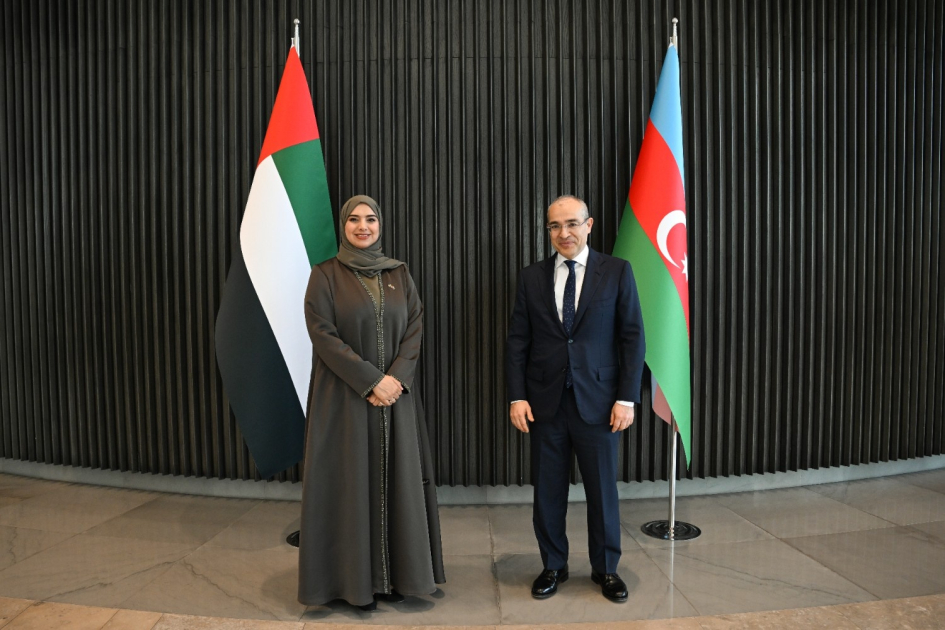The world is changing rapidly. The starting geography of these rapid changes is also being updated. NATO Secretary General Jens Stoltenberg visited Azerbaijan, Armenia and Georgia from March 17 to 19. According to the press service of the North Atlantic Alliance, Mr. Stoltenberg is already in Baku, where he will meet with the President of the Republic of Azerbaijan, Mr. Ilham Aliyev. The next day NATO Secretary General will go to Tbilisi, where he will hold meetings with Georgian President Salome Zurabishvili and Prime Minister Irakli Kobakhidze. Finally, on Tuesday, March 19, Stoltenberg will be in Yerevan, where he will meet with Armenian President Vaagin Khachaturian and Prime Minister Nikol Pashinyan.
Let's look at these issues from two different analytical perspectives. Can the Caucasus be a zone of eternal instability? or can a new front of confrontation with Russia be opened? But let's agree that the joining of the countries of the region to NATO is not on the agenda. There is another version of the visit: they will warn the post-Soviet republics not to go into conflict with Iran. Because as a result of the Azerbaijan-Armenia war, Turkey can gain access to the Caspian Sea through the Zangezur Corridor, which means the presence of NATO in the Caspian Sea. They can be used against Russia and Iran. The state with which Iran has different relations in the region is Azerbaijan.
In a meeting for the press with President Ilham Aliyev in Baku, Mr. Stoltenberg welcomed the opportunity to discuss energy security, saying: “energy matters for our security and I welcome that Azerbaijan is developing closer and closer ties with several NATO Allies.” He further pointed to a track record of work on issues of mutual concern and thanked Azerbaijan for its contributions to NATO-led operations and missions – including in Kosovo and Afghanistan – since Azerbaijan joined NATO’s Partnership for Peace in 1994. The Alliance and Baku have also cooperated through NATO’s Science for Peace and Security programme on counter-terrorism and cyber security.
On the situation in the South Caucasus, the Secretary General underlined that “peace and stability is not only important here but for security more broadly”. He said: “Armenia and Azerbaijan now have an opportunity to achieve an enduring peace after years of conflict.” He added: “I can just encourage you to seize this opportunity to reach a lasting peace agreement with Armenia”. On Ukraine, Mr Stoltenberg welcomed the much-needed support provided by Azerbaijan, and called on all countries in the region to step up: “more support is needed because the situation in Ukraine is extremely difficult.”
The Secretary General called the upcoming COP29 global climate summit in Azerbaijan an important milestone: “It is important for everyone concerned about climate change but also important for our security because those issues are closely interlinked.
If we look at the current situation in the region from the point of view of international relations analysis, Azerbaijan has established serious diplomatic, commercial and military relations with Israel. It is quite possible that in the future Baku will become a place where the naval forces representing the interests of NATO and the State of Israel are stationed. Of course, there is another version, but now it is impossible to give an unequivocal answer to any of them. Jens Stoltenberg's visit also coincides with the end of the 11th Global Baku Forum on "Restoring the Fractured World" hosted by our country in Baku. Very serious messages were also sent from the forum to the world that the world is continuing to be divided. So many interests and purposes are shared. Often the destinies of nations are not taken into account in countries. The President of the Republic of Azerbaijan, Mr. Ilham Aliyev, said in his speech at the XI Global Baku Forum on "Restoration of the Broken World": "The world is changing rapidly. Unfortunately, new sources of instability and conflict are emerging. If we compare what we discussed in March of last year with what we are discussing today, we will see noticeable changes. Geopolitical changes are taking place here. ” historical statement is a call to our region to be more careful, a thesis mobilizing for peace and cooperation.
On the last day of the forum, "Regional perspectives: the European Union and its neighbors", "Increasing resilience to global challenges: fighting inequality, lack of resources and migration", "Artificial intelligence, drones and a new security paradigm in the era of cyber warfare", "Young people speak, we listen" ", it was also mentioned that what is happening today has led to deeper divisions. Before that, in Baku (8 March 2024), in his address to the participants of the international conference on "Protection of diversity: fight against Islamophobia in 2024", our head of state called for mobilization of the world's attention to solve a more global problem: "Today's event is the beginning of the blessed month of Ramadan for the Islamic world and "With Islamophobia Holding it on the eve of "International Day of Struggle" has a symbolic meaning. It is unfortunate that Islamophobia is currently an integral part of the state policy of a number of Western countries that consider themselves democratic. These countries account for 80 percent of all anti-Islamic manifestations in the world in the last year.
In some European countries, where Islamophobia has reached the highest level and is applied as an official ideology, the burning of our holy book "Holy Quran", the publication of caricatures of the Prophet Muhammad (pbuh) and other offensive actions are described as freedom of speech. Along with its traditional policy of neo-colonialism, France carries out a policy of open repression and discrimination against Muslims, and organizes various Islamophobic campaigns. Under the guise of "secularism", it adopts legislative acts and political decisions aimed at restricting the rights and freedoms of Muslims. In this country, mosques, Muslim cultural centers and cemeteries are subjected to insults in various forms, and Muslim citizens are oppressed. As can be seen from this text, Mr. Ilham Aliyev expresses his sharp protest against the peace breakers of the modern world, and at the same time makes ideological and justified appeals to compromise on ways out. We think they know little about the course and idea of these two historical conferences for the purpose of Jens Stoltenberg's visit. Even their lack of information or their desire to be ignorant can reveal their goals for the region in completely different situations.
Jens Stoltenberg's visit can be considered a confirmation of NATO's growing interest in the South Caucasus. NATO is expanding against whom and which countries? His expression would probably seem rhetorical to the obivatel consciousness. There are examples of the Secretary General of NATO visiting countries that are not members of the Alliance, but are of interest to this organization. For example, we can mention Stoltenberg's visit to Japan and South Korea in January 2023. There were no serious consequences here. Y. Stoltenberg mentioned that Azerbaijani peacekeepers are highly professionally represented in NATO's partnership program. He expressed his gratitude for this. However, there are questions that concern every ordinary citizen in the South Caucasus.
I wonder if this visit will bring peace to this country or increase the risks of conflict. An environment of stability has been created in the South Caucasus for 4 years since the collapse of the USSR. Azerbaijan has removed the military junta regime from Garabagh, social construction works have been started in the region. It was important for Y. Stoltenberg to pay attention to such important factors. In our opinion, NATO should increase its efforts to strengthen peace today and should clearly state what and to whom it directs its military blocking power. The collision of civilizations is not a meteorite event. It will happen sooner or later. Instead, political conflicts, which are calculated to lead many nations to face local wars before this conflict, are undesirable.
As is known, Georgia is the country with the closest relations with NATO in the South Caucasus. In particular, in 2018, the country's constitution was amended on full integration into NATO. Stoltenberg has already visited this country several times. As for Armenia, an additional factor in the alliance's interest in this country is the coldness between Yerevan and the CSTO. NATO had this interest even before the Prime Minister of Armenia, Nakol Pashinyan, announced that his country had "frozen" its work in the CSTO. For example, Xavier Colomina, the special representative of the NATO Secretary General for the Caucasus and Central Asia, visited Yerevan twice in 2023 and in January 2024.
Stoltenberg first went to Baku, then to Tbilisi, and finally to Yerevan. How can we explain this sequence? Perhaps, by starting the trip from Azerbaijan, Stoltenberg is trying to compensate for Javier Colomina not coming to Baku in January 2024. In addition, such a visit program could be a signal of the possibility of a "thaw" between the United States (as a leading NATO player) and Baku at the 15-th December of 2023.
Of course, we can also express our views on Armenia's withdrawal from the CSTO and its possible membership in NATO. In the near future, whether Armenia will officially leave the CSTO will be a matter of political negotiation with both official Yerevan, Moscow, and Western players. At the same time, the scenario of Armenia's withdrawal from the CSTO is probably evaluated by France as an opportunity to increase its influence on Yerevan.
We would like to note a few facts about this topic. The statement from Yerevan that Russian border guards are no longer needed in "Zvartnots" is quite symbolic and requires an explanation. Thus, this is a more important signal than the termination of participation in the CSTO. Discussions about border guards show that Armenia can worsen the current level of bilateral relations.
Yerevan is trying to revise the current architecture of its foreign policy. To show its loyalty to the West, Armenia solves tactical issues and tries to take steps to distance Yerevan from Moscow. Rather, we see a new attempt from Pashinyan's team to change the geopolitical vector. Meanwhile, Nikol Pashinyan trusts France a lot. But will lose in the end as a plitical collapser.
Armenia's serious efforts to establish relations with its neighbors in the region are also noteworthy. Most of Yerevan's actions are related to its geographical position, Armenia is trying to integrate into logistics and other projects of Turkey and Azerbaijan. Moreover, France's failures in domestic and foreign policy are not abating. The protests on the eve of the Summer Olympic Games covered the whole country. Farmers oppose the government's reforms in the agrarian sector, block the ro The situation in foreign policy is no different from inside. The Elysee Palace, which was shamefully expelled from its once-colonial territories, was deprived of large revenues. The looting of colonies brought billions of dollars to the country's budget, but it was also a matter of prestige. Now there is none of that. The main reason for the French bankruptcy is President Emmanuel Macron.
It has reached the point where the French flag is burned in the former colonies, and everything that reminds of it is destroyed. Its place is occupied by countries like Russia and Turkey. This upsets the Elysee Palace and makes it take opposite steps. This is why the campaign of total attack against both countries has started. For example, Paris threatens Russia by sending a military contingent of EU countries to Ukraine. Although this idea is described as an adventure in the Western countries, Macron is trying to get his word across. Pushing Russia out of Armenia is also part of this plan. As for Turkey, France is not able to fight openly. Being a NATO ally, Ankara's influence and power do not allow this plan to be realized openly. He still hopes for Armenia. Paris strengthens the anti-Azerbaijani rhetoric in this country and openly supports the overthrow of the former separatist regime.ads, and criticize the authorities.
These and a number of other steps of Yerevan also bring up the hypothetical plans of Armenia for rapprochement with NATO.
The international targets of Macron's political populism are the Caucasus and Central Asia, but will it be achieved?
One of the most important issues in this direction is the attempt of Macron's France to penetrate Central Asia. The main idea is that Ankara's African policy violated the French colonial order. For this reason, Macron intervenes in the Ukraine-Russia war and tries to bring the Turkish states under his hegemony. Recently, he has been making remarkable statements in this direction. Turkey's steps in Africa, political, military and commercial rapprochement with many countries, "win-win" tactics have made France an undesirable country in the region. After the disappointment in Africa, the French leader, whose plans were disrupted, changed his route to the Caucasus, as well as visited Kazakhstan and Uzbekistan.
Macron's government suffered a heavy defeat against Turkey in Karabakh and Libya, and suffered serious losses against Turkish companies in the field of defense. These are facts. Speaking to the newspaper "Turkiyya" about the current situation, experts note that the Turkish army has seriously disrupted France's game in Syria and Iraq. The French are also trying to incite Armenia and the South Caucasus to take revenge. France's goal is a long-term war. France wants to settle in Syria and Armenia and become Turkey's neighbor. One of the most important goals of the French interest in the Caucasus is to divert Turkey's attention from all energy and strategically important regions, especially the Mediterranean Sea. The fire that France wants to light will cause great damage to the Organization of Turkic States. Macron is trying to open new areas of exploitation. His visits to the Turkish republics should be evaluated in this context.
It should be noted that during Emmanuel Macron's visit to Kazakhstan on November 1 last year, the issue of purchasing uranium was a priority. The importance of Kazakhstan for France, which provides 60 percent of its energy needs through Nuclear Power Stations, is also related to the fact that this country is rich in uranium. After the military coup in Niger, which is rich in uranium and supplies France, the importance of Kazakhstan has increased for Paris. In addition, since the start of the Russia-Ukraine war, Kazakhstan has become the third major supplier of fuel to Europe after the United States and Norway. France has invested 17 billion dollars in Kazakhstan's economy and is among the five largest investor countries. Uzbekistan also seems interested in expanding cooperation with France. Last year, President Shavkat Mirziyoyev returned from a trip to France with a portfolio of contracts worth 6 billion dollars. Most of these contracts were related to the energy sector.
Thus, Macron, who does not ignore the development of Muslim and Turkish countries, is still grateful to the Turkish states. He wants to supply uranium from Central Asia. Let's mention one fact that it is forbidden to transport uranium by air transport. Macron's government is experiencing prejudice and enmity with the countries that own land routes. The main route connecting Central Asia and Europe is currently the Middle Corridor passing through Azerbaijan. If Macron supplies uranium from Central Asia, he will still need Azerbaijan, which he is targeting by supporting Armenia.
Thus, Emmanuel Macron and his team, who went on a "crusade" against Muslims in his country, are in a difficult situation. Otherwise, he would not have turned to the region located thousands of kilometers away - to the Muslim and Turkish states. It seems that he is trying to solve his problems through them. Looking at it this way, there is a way out of the problem. This way is also simple - one-sided policy should be abandoned and pragmatic policy based on state interest should be preferred instead of personal interest. Otherwise, like in Niger, he will be kicked out everywhere he sets foot. Let's assume that Jens Stoltenberg's visit will slow down France's reactionary political steps towards the Caucasus. The President of the Republic of Azerbaijan, Ilham Aliyev, in his speech at the 11th Global Baku Forum on "Restoration of the Broken World" said: "And now, after the Karabakh issue has been resolved, we are very close to peace. We think so. "Azerbaijan is ready to continue the peace process" is also a global peace call. It is enough that the war coalition of the parties that will try to hinder the future peaceful development of the region does not emerge.
Professor Kamran A. Behbudov
Associate Professor Huseyn G. Ibrahimov
20-th March. 2024 Brussel, Belgium
By B&H Caucaus Reserach Analytical Center


